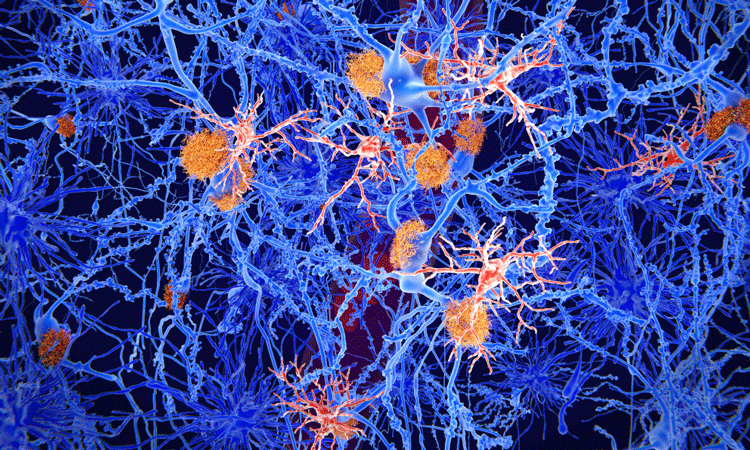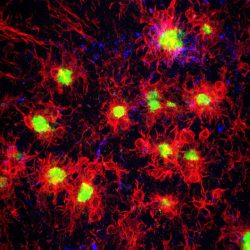Link between immune cells and Alzheimer’s discovered
Posted: 21 August 2019 | Victoria Rees (Drug Target Review) | No comments yet
Researchers have found that the presence of microglia brain cells allowed plaques to form in the brains of rodents, leading to Alzheimer’s disease.


A study has discovered how to prevent Alzheimer’s disease in a laboratory by removing brain immune cells. The researchers say that their findings could help to identify drug targets for the condition.
The research was conducted by the University of California, Irvine School of Biological Sciences, US. The team found that removing microglia immune cells from the brain in rodent models of Alzheimer’s disease, beta-amyloid plaques did not form. These plaques are imperative in the pathology of the disease.
Previous studies have shown that most Alzheimer’s risk genes are switched on in microglia, suggesting they play a role in the disease.


Microglia, shown in red, surround and react to the amyloid-beta plaques, shown in green, in the Alzheimer’s disease brain (credit: Kim Green lab/UCI).
The new research investigated the actions of the brain cells. The team used a drug to block microglia from signalling, which is crucial for their survival. The researchers found this effectively eliminated the immune cells from the brain.
“What was striking about these studies is we found that in areas without microglia, plaques didn’t form,” lead researcher Professor Kim Green said. “However, in places where microglia survived, plaques did develop. You don’t have Alzheimer’s without plaques and we now know microglia are a necessary component in the development of Alzheimer’s.”
The team also found that when plaques are present, microglia perceive them as harmful and attack them. However, this also switches off genes in neurons needed for regular brain function.
The researchers say their discovery holds promise for creating future drugs that prevent the disease.
“What could be possible is devising therapeutics that affect microglia in targeted ways,” added Green.
The findings were published in Nature Communications.
Related topics
Drug Targets, microglial cells, Neurons, Neurosciences, Research & Development
Related conditions
Alzheimer’s disease
Related organisations
Nature Communications, University of California Irvine School of Biological Sciences
Related people
Professor Kim Green








